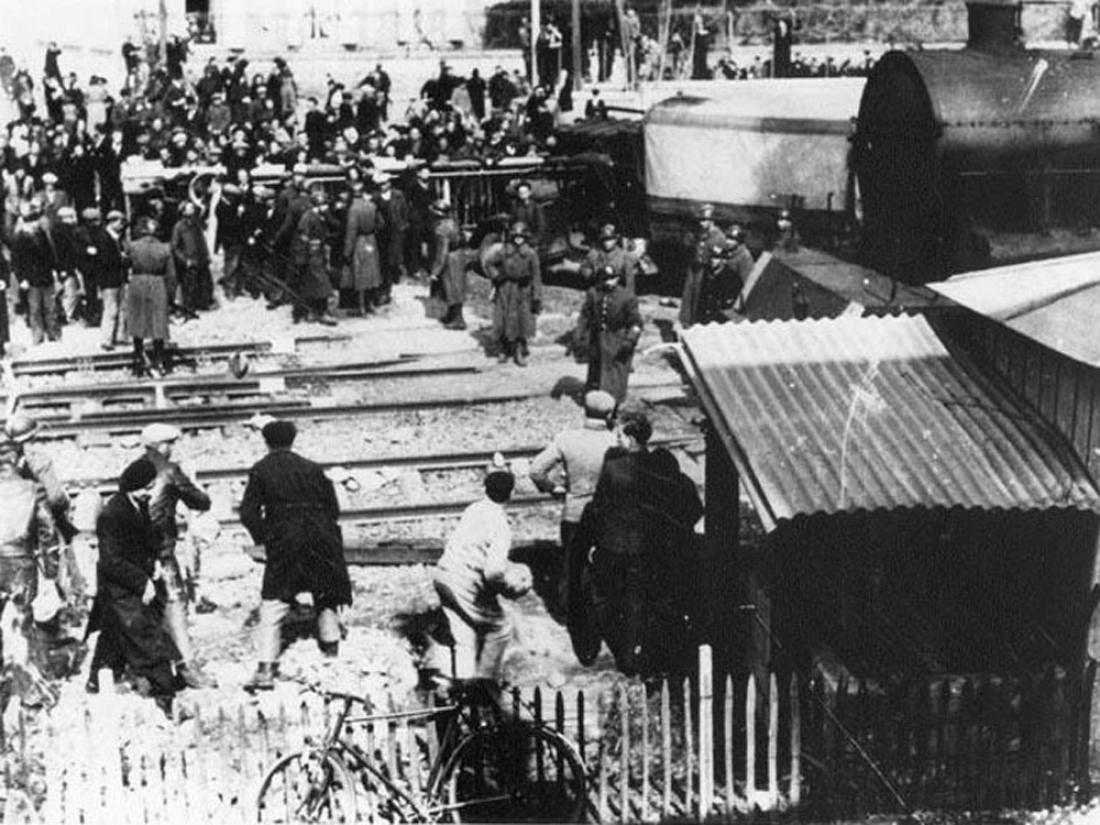La Résistance en actes

Corps 1
The Resistance in acts
Corps 2
Information
After the signature of the Franco-German armistice, England has to face the enemy alone and under the threat of an imminent invasion. From July 1940, the English and ?France Libre? seek to collect some information concerning the preparations of the enemy or the situation in France; for this purpose, networks are constituted in connection to the intelligence Service or also BCRA and soon they will have at their disposal transmission equipment, in particular radio sets. The information collected will be extremely precious for the preparation and execution of the landing. But, despite the abundance and quality of the information transmitted to London, the allied aviation will often miss its targets: 65 000 French will die under the bombardments.
Assistance to the tracked people
Assistance to the tracked people ( resistant, opponents, rebellious, Jewish?)
The escape
The escape activities started during the campaign of France in June 1940, when defeated groups of French and English soldiers try to avoid to be captured by the Wehrmacht. Spontaneously the citizens helped them by hiding them, giving them food and making their escape toward England easier. Consequently, entire organised channels and networks will be constituted, in order to help the allied aviators, to allow the crossing of the demarcation line, to make the escape of prisoners and wanted persons easier, or to lead those who wish to join france Libre towards England or Spain.
The escape
The Propaganda
Les chemins de mémoire sont disponibles en anglais et en allemand
The sabotage and the preparation for the insurrection
Les chemins de mémoire sont disponibles en anglais et en allemand
The commando operations
The « maquis » (Underground mouvment)
From the end of the year 1942, the ?maquis? will be progressively constituted. At the beginning it is about refuge zones for the people wanted by the Germans or the police of Vichy: Jews, Communists, Spanish republicans, detected resistants, antifascists of all nationalities, deserters of the german army, etc. ( in these rural zones the inhabitants of the little villages and neighbourhood help, assist and supply the refugees ). They are quickly supervised by the resistance movement, which is already made up. It is with the introduction of the obligatory conscription of labour and especially with the promulgation of the obligatory work in Germany on the 16th February 1943, that the number and importance of the maquis (underground movement) increases, thanks to massive crowd of refectories. Little by little these maquis become real reserves of potential fighters, trained and armed ; in April 1943, the ?Mouvements Unis de Résistance? (MUR) (United Movements of Resistance) a ?national service of the maquis?. The responsibility is entrusted in Michel Brault, and then in Georges Rebattet (Colonel). The mysticism of these underground movements (?maquis?), the one of the ?Légion de Montagne? (Maurice Schumann), spreads and attracts a lot of young recruits. But these movements were like a double bladed sword. On one hand they inspired action, but on the other hand they also generated frustration. In June and July 1943, gendarmerie reports, concerning the mountainous regions of the Massif Central and the foothills of the Alps, will easily stop rebellious thanks to denunciations and police investigations. Their disappointment is big when they discovered that the underground movement hasn't got a proper military equipment and their image of an idleness and heroic life vanishes all of a sudden. ( H. Roderick Kedward, ? S.T.O and ?maquis?, in Jean-Pierre Azéma and Francois Bédarida (dir.), France in its dark years, vol.2 : From the occupation to the Liberation, Le Seuil, 1993, page 271). But the situation of the underground movements will get better little by little, once there is a perspective of landing by the allied troupes.

